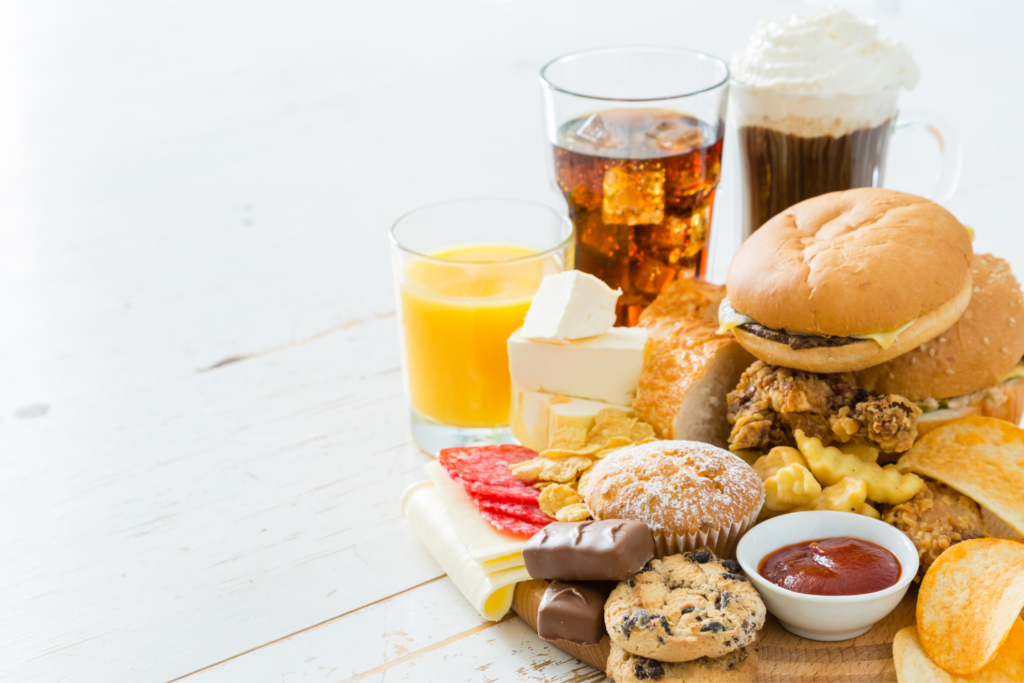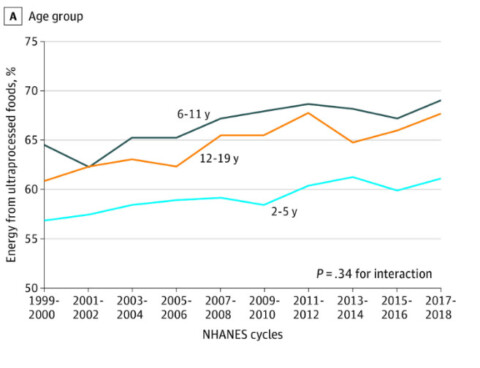The Sadness of Ultra-processed Foods


Ultra-processed foods (UPFs) make up a whopping 60+ percent of the average American’s daily caloric intake. We are increasingly aware of the health consequences from diets that rely on these foods for young people, and several studies in the past year have also pointed out some profound mental health associations with a diet high in highly processed foods.
So what are ultra-processed foods? Think of UPFs as food that comes to your plate from a factory rather than a farm. They generally include ingredients you wouldn’t cook with at home, such as high fructose corn syrup, hydrogenated oils, emulsifiers, protein isolates and additives that you likely couldn’t spell, much less identify as food. Compare these ultra-processed foods to unprocessed or minimally processed foods such as fresh fruits and vegetables, breads, pastas, rice, or fresh meats or seafood. UPFs are also distinguished from more traditional and less harmful processed foods such as butter, smoked meats or fish, and dairy products.
Examples of UPFs include sugary drinks and store bought desserts like muffins and cakes, fast foods, most of the frozen food aisle, most breakfast cereals, instant soups and ramen, highly processed meats such as sausage and hot dogs, and ‘junk food’ such as chips and pretzels.
In moderation, these foods often do minimal harm, but over the past two decades they have become a larger and larger percentage of the foods we eat, especially among children, with negative physical and mental health consequences.
The evidence for the health outcomes related to UPFs is robust, from obesity to diabetes, cardiac disease and even cancer. In children, we have ample evidence for an association between consumption of highly processed foods and obesity, but many of the negative outcomes from these foods in our diet aren’t seen until later in life.

1. From Trends in Consumption of Ultraprocessed Foods Among US Youths Aged 2-19 Years, 1999-2018, Lu Wang et al, JAMA 2021 Aug 10;326(6):519-530
What’s interesting in these recent studies is that we are seeing an association in real time between diets high in UPFs and changes in mental health. With anxiety, depression and suicide all on the rise among our young people, this association has profound implications.
In one study that included over 10,000 American adults (Public Health Nutrition, November 2022), scientists concluded that “individuals reporting higher intakes of UPFs were significantly more likely to report depression, more mentally unhealthy days and more anxious days, and they were less likely to report zero mentally unhealthy or anxious days.” In short, the more ultra-processed foods a person eats, the worse their mental health is likely to be.
These highly processed foods are easy, super convenient when we want to feed the family after a long day, and admittedly, with lots of salt, sugar and fat they taste pretty delicious. So cutting them out entirely may not be possible or desirable for your family.
One alternative to eliminating foods is simply to add healthy alternatives to your family’s food culture. There is sound evidence for the protective effect of a diet rich in whole grains, green leafy vegetables, legumes, nuts, berries, fish, chicken and olive oil. Get back in touch with traditional foods your ancestors may have enjoyed in the time before we invented high fructose corn syrup (way back in the 1970s).
If you’re eating a pretty typical American diet at around the 60 percent UPF mark, consider cutting the amount of these foods down with a goal of 30 percent instead. When the kids ask for a snack, offer healthy nuts instead of chips, fresh fruits instead of fruit roll-ups or candies. Consider pastas and salads with homemade sauces and dressings instead of jarred. Oatmeal and granola with berries or eggs and whole wheat toast make a great alternative to highly processed boxed cereals for breakfast.
Shifting how we eat is hard, but you may find it more satisfying and delicious as you source your family’s nutrition closer to the farm rather than the factory. And as mounting evidence shows, you and your kids may have more positive mental health days as an added benefit!
